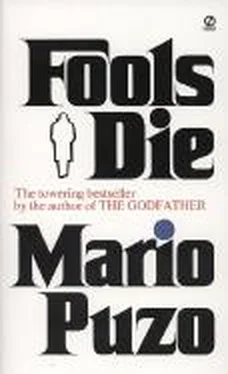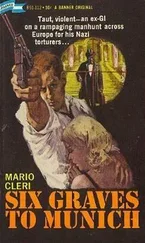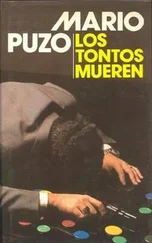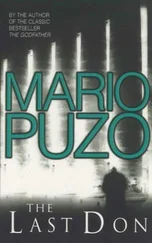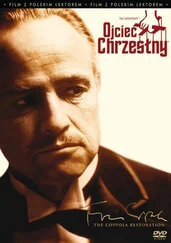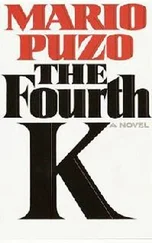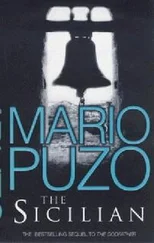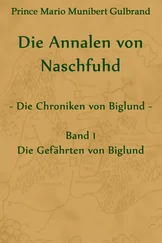Mario Puzo - Fools die
Здесь есть возможность читать онлайн «Mario Puzo - Fools die» весь текст электронной книги совершенно бесплатно (целиком полную версию без сокращений). В некоторых случаях можно слушать аудио, скачать через торрент в формате fb2 и присутствует краткое содержание. Жанр: Современная проза, на английском языке. Описание произведения, (предисловие) а так же отзывы посетителей доступны на портале библиотеки ЛибКат.
- Название:Fools die
- Автор:
- Жанр:
- Год:неизвестен
- ISBN:нет данных
- Рейтинг книги:3 / 5. Голосов: 1
-
Избранное:Добавить в избранное
- Отзывы:
-
Ваша оценка:
- 60
- 1
- 2
- 3
- 4
- 5
Fools die: краткое содержание, описание и аннотация
Предлагаем к чтению аннотацию, описание, краткое содержание или предисловие (зависит от того, что написал сам автор книги «Fools die»). Если вы не нашли необходимую информацию о книге — напишите в комментариях, мы постараемся отыскать её.
Fools die — читать онлайн бесплатно полную книгу (весь текст) целиком
Ниже представлен текст книги, разбитый по страницам. Система сохранения места последней прочитанной страницы, позволяет с удобством читать онлайн бесплатно книгу «Fools die», без необходимости каждый раз заново искать на чём Вы остановились. Поставьте закладку, и сможете в любой момент перейти на страницу, на которой закончили чтение.
Интервал:
Закладка:
“I’m working on it,” I said. “Still a long way to go.”
Lancer smiled sympathetically. “You’re a good writer,” he said. “You’ll make it big someday. Don’t worry.”
– -
We talked awhile longer about writing and books. We both agreed we were better novelists than most of the famous novelists making their fortunes on the best-seller lists. When I left, I was in a confident mood. I always left Lancer that way. For some reason he was one of the few people I felt easy with, and because I knew he was smart and gifted, his good opinion of my talent cheered me up.
And so everything had turned out for the best. I was now a full-time writer, I would lead an honest life, I had escaped jail and in a few months I would move into my very own house, for the first time in my life. Maybe a little crime does pay.
– -
Two months later I moved into my newly built house on Long Island. The kids all had their own bedrooms. We had three bathrooms and a special laundry room. I would no longer have to lie in my bath while newly washed clothes dripped down into my face. No longer have to wait for the kids to finish. I had the almost excruciating luxury of privacy. My own den to write in, my own garden, my own lawn. I was separate from other people. It was Shangri-La. And yet it was something so many people took for granted.
Most important of all, I felt that now my family was safe. We had left the poor and desperate behind us. They would never catch up; their tragedies would never cause ours. My children would never be orphans.
Sitting on my suburban back porch one day, I realized I was truly happy, maybe happier than I would ever be in my life again. And that made me a little pissed off. If I was an artist, why was I so happy with such ordinary pleasures, a wife I loved, children who delighted me, a cheap tract house in the suburbs? One thing sure, I was no Gauguin. Maybe that was why I wasn’t writing. I was too happy. And I felt a twinge of resentment against Valerie. She had me trapped. Jesus.
Except even this couldn’t keep me feeling content. Everything was going so well. And the pleasure you took in children was so commonplace. They were so disgustingly “cute.” When my son was five years old, I had taken him for a walk through the streets of the city and a cat had jumped out of a cellar and almost literally sailed in front of us. My son had turned to me and said, “Is that a scaredy-cat?” When I told Vallie about it, she was delighted and wanted to send it in to one of those magazines that pay money for cute little stories. I’d had a different reaction. I wondered if one of his friends had taunted him with being a scaredy-cat and he had been puzzled by what the phrase meant rather than insulted. I thought of all the mysteries of language and experience my son was encountering for the first time. And I envied him the innocence of childhood as I envied him the luck he had in having parents he could say that to and then have them make a fuss over him.
And I remembered one day when we had gone out for a family Sunday-afternoon walk on Fifth Avenue, Valerie window-shopping for dresses she could never afford. Coming towards us was a woman about three feet tall but dressed elegantly in suede jerkin and white frilly blouse and dark tweed skirt. My daughter tugged at Valerie’s coat and pointed to the dwarf lady and said, “Mommy, what’s that?”
Valerie was horrified with embarrassment. She was always terrified about hurting anyone’s feelings. She shushed my daughter until the woman was safely past. Then she explained to our daughter that the woman was one of those people who had never grown taller. My daughter didn’t really grasp the idea. Finally she asked, “You mean she didn’t grow up. You mean she’s an old lady like you?”
Valerie smiled at me. “Yes, dear,” she said. “Now don’t think about it anymore. It only happens to very few people.”
At home that night, when I told my kids a story before sending them to bed, my daughter seemed to be lost in thought and not listening. I asked her what was wrong. Then, her eyes very wide, she said, “Daddy, am I really a little girl or am I just an old lady who didn’t grow up?”
I knew that there were millions of people who had stories like this to tell about their kids. That it was all terribly commonplace. And yet I couldn’t help the feeling that sharing a part of my children’s lives made me richer. That the fabric of my life was made up of these little things that seemed to have no importance.
Again my daughter. One evening at dinner she had infuriated Valerie by continuingly misbehaving. She threw food at her brother, deliberately spilled a drink and then knocked over a gravy boat. Finally Valerie screamed at her, “You do one more thing and I’ll kill you.”
It was, of course, a figure of speech. But my daughter stared at her very intently and asked, “Do you have a gun?”
It was funny because she so obviously believed that her mother couldn’t kill her unless she had a gun. She knew nothing yet of wars and pestilence, of rapists and molesters, of automobile accidents and plane crashes, clubbings, cancer, poison, getting thrown out of a window. Valerie and I both laughed, and Valerie said, “Of course I haven’t got a gun, don’t be silly.” And the knot of worried concentration disappeared from my daughter’s face. I noticed that Valerie never made that kind of irritated remark again.
And Valerie astonished me too sometimes. She had become more and more Catholic and conservative with the years. She was no longer the bohemian Greenwich Village girl who had wanted to become a writer. In the city housing project pets had been forbidden, and Value never told me she loved animals. Now that we owned a house Valerie bought a puppy and a kitten. Which didn’t make me too happy, even though my son and daughter made a pretty picture playing with their pets on the lawn. The truth is that I had never liked house dogs and cats; they were caricatures of orphans.
I was too happy with Valerie. I had no idea then how rare this was and how valuable. And she was the perfect mother for a writer. When the kids fell and had to get stitched up, she never panicked or bothered me. She didn’t mind doing all the work a man usually does around the house and which I had no patience for. Her parents now lived only thirty minutes away, and often in the evenings and on weekends she took the car and the kids and went there without even asking me if I wanted to go. She knew I hated that kind of visit and that I could use time alone to work on my book.
But for some reason she had nightmares, maybe because of her Catholic upbringing. During the night I would have to wake her up because she gave little cries of despair and wept even while sound asleep. One night she was terribly frightened and I held her close in my arms and asked her what was wrong, what she’d dreamed about and she whispered to me, “Never tell me that I’m dying.”
Which scared the hell out of me. I had visions of her having gone to the doctor and receiving bad news. But the next morning, when I questioned her about it, she didn’t remember anything. And when I asked her if she had been to see the doctor, she laughed at me. She said, “It’s my religious upbringing. I guess I just worry about going to hell.”
– -
For two years I wrote free-lance articles for the magazines, watched my kids grow up, so happily married that it almost disgusted me. Valerie did a lot of visiting with her family, and I spent a lot of time in my basement writing den, so we really didn’t see that much of each other. I had at least three assignments from the magazines every month, while working on a novel I hoped would make me rich and famous. The kidnapping and murder novel was my plaything; the magazines were my bread and butter. I figured I had another three years to go before I finished the book, but I didn’t care. I read through the growing pile of manuscript whenever I became lonely. And it was lovely watching the kids grow older and Valerie happier and more content and less afraid of dying. But nothing lasts. It doesn’t last because you don’t want it to last, I think. If everything is perfect, you go looking for trouble.
Читать дальшеИнтервал:
Закладка:
Похожие книги на «Fools die»
Представляем Вашему вниманию похожие книги на «Fools die» списком для выбора. Мы отобрали схожую по названию и смыслу литературу в надежде предоставить читателям больше вариантов отыскать новые, интересные, ещё непрочитанные произведения.
Обсуждение, отзывы о книге «Fools die» и просто собственные мнения читателей. Оставьте ваши комментарии, напишите, что Вы думаете о произведении, его смысле или главных героях. Укажите что конкретно понравилось, а что нет, и почему Вы так считаете.
